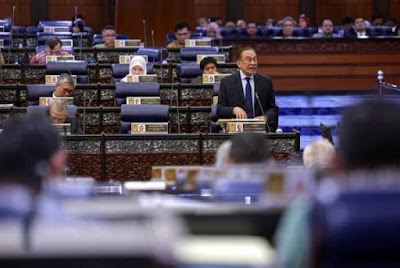PETALING JAYA: A former PSM MP said while a Malay tsunami may have helped Pakatan Harapan (PH) win the 14th general election, Umno and PAS still secured the majority of rural Malay votes.
Michael Jeyakumar Devaraj said voting data in Sungai Siput showed that Umno garnered 52% of the rural Malay vote in the constituency while PAS managed to get three-quarters of the non-BN vote.
And while the distribution of votes may not be the same in rural areas in Selangor and in the southern states of the Peninsula, he suspects the trend would be similar in other rural areas in Perak and other northern states.
The data, Jeyakumar explained, indicated two things: One is that the rural Malay population did not quite trust the PH government to look after its interests and were worried that some of the beneficial initiatives from the previous government would be reduced.
"It is important therefore to reach out to these communities, find out their concerns and make sure that they are also beneficiaries of Pakatan Harapan's stated aim to improve those who fall under the B40 group.
"This might require tweaking of existing programmes or perhaps even new programmes that address their economic problems," he said in a statement.
He added that the support of Malays for PH in Selangor – which is higher than in Perak – was proof that programmes for the B40 group which had been undertaken by the state government were appreciated and had won voters over.
Secondly, Jeyakumar said, PH must acknowledge the fact that PAS received the votes of almost a third of the rural voters in Sungai Siput and probably in the rest of Perak and Kedah.
It would be a mistake, he warned, if PH were to dismiss this as just a protest vote against Umno.
"I would take it as another indicator that Islam is an important component of the identity of Malays. It would be a mistake if PH gives the impression that it is not interested in developing Islam and Islamic institutions," he said, adding failure to do so would see the opposition exploit the issue.
Jeyakumar went on to point out that there were differing views among Muslims in Malaysia on the development of Islam in the country but if progressive Muslims were hampered from engaging in this ideological battle, the country ran the risk of "allowing a rules-bound, punitive and intolerant version of Islam to become dominant".
He then urged PH to take note of the voting trend of rural Malays, saying the coalition must take steps to win over traditional BN supporters who had thrown their lot behind PAS before the next polls.




No comments
Post a Comment